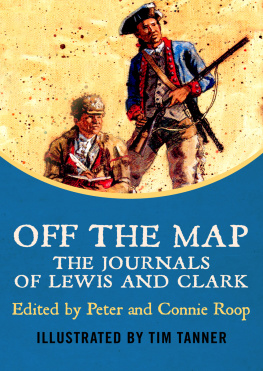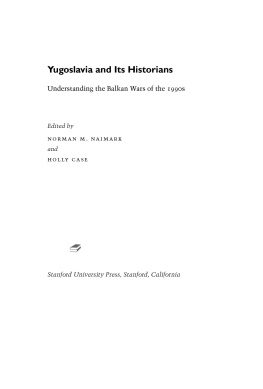Hardpress - The Great Events by Famous Historians, Volume 14
Here you can read online Hardpress - The Great Events by Famous Historians, Volume 14 full text of the book (entire story) in english for free. Download pdf and epub, get meaning, cover and reviews about this ebook. year: 2016, publisher: HardPress, genre: History. Description of the work, (preface) as well as reviews are available. Best literature library LitArk.com created for fans of good reading and offers a wide selection of genres:
Romance novel
Science fiction
Adventure
Detective
Science
History
Home and family
Prose
Art
Politics
Computer
Non-fiction
Religion
Business
Children
Humor
Choose a favorite category and find really read worthwhile books. Enjoy immersion in the world of imagination, feel the emotions of the characters or learn something new for yourself, make an fascinating discovery.

The Great Events by Famous Historians, Volume 14: summary, description and annotation
We offer to read an annotation, description, summary or preface (depends on what the author of the book "The Great Events by Famous Historians, Volume 14" wrote himself). If you haven't found the necessary information about the book — write in the comments, we will try to find it.
The Great Events by Famous Historians, Volume 14 — read online for free the complete book (whole text) full work
Below is the text of the book, divided by pages. System saving the place of the last page read, allows you to conveniently read the book "The Great Events by Famous Historians, Volume 14" online for free, without having to search again every time where you left off. Put a bookmark, and you can go to the page where you finished reading at any time.
Font size:
Interval:
Bookmark:

By THE NATIONAL ALUMNI
An Outline Narrative of the Great Events,
CHARLES F. HORNE
The Battle of Lexington ( a.d. 1775),
RICHARD FROTHINGHAM
The Battle of Bunker Hill ( a.d. 1775),
JOHN BURGOYNE
JOHN HENEAGE JESSE
JAMES GRAHAME
Canada Remains Loyal to England
Montgomery's Invasion ( a.d. 1775),
JOHN M'MULLEN
Signing of the American Declaration of Independence
( a.d. 1776),
THOMAS JEFFERSON
JOHN A. DOYLE
The Defeat of Burgoyne at Saratoga ( a.d. 1777),
SIR EDWARD SHEPHERD CREASY
The First Victory of the American Navy ( a.d. 1779),
ALEXANDER SLIDELL MACKENZIE
Joseph II Attempts Reform in Hungary ( a.d. 1780),
ARMINIUS VAMBERY
Siege and Surrender of Yorktown ( a.d. 1781),
HENRY B. DAWSON
LORD CORNWALLIS
British Defence of Gibraltar ( a.d. 1782),
FREDERICK SAYER
Close of the American Revolution ( a.d. 1782),
JOHN ADAMS
JOHN JAY
BENJAMIN FRANKLIN
HENRY LAURENS
JOHN M. LUDLOW
Settlement of American Loyalists in Canada ( a.d. 1783),
SIR JOHN G. BOURINOT
The First Balloon Ascension ( a.d. 1783),
HATTON TURNOR
Framing of the Constitution of the United States ( a.d. 1787),
ANDREW W. YOUNG
JOSEPH STORY
Inauguration of Washington
His Farewell Address ( a.d. 1789-1797),
JAMES K. PAULDING AND GEORGE WASHINGTON
French Revolution: Storming of the Bastille ( a.d. 1789),
WILLIAM HAZLITT
Hamilton Establishes the United States Bank ( a.d. 1791),
ALEXANDER HAMILTON AND LAWRENCE LEWIS, JR.
The Negro Revolution in Haiti ( a.d. 1791)
Toussaint Louverture Establishes the Dominion of his Race,
CHARLES WYLLYS ELLIOTT
Republican France Defies Europe
The Battle of Valmy ( a.d. 1792),
ALPHONSE M. L. LAMARTINE
The Invention of the Cotton-gin ( a.d. 1793)
Enormous Growth of the Cotton Industry in America,
CHARLES W. DABNEY
R. B. HANDY
DENISON OLMSTED
The Execution of Louis XVI ( a.d. 1793)
Murder of Marat: Civil War in France,
THOMAS CARLYLE
The Reign of Terror ( a.d. 1794),
FRANOIS P. G. GUIZOT
The Downfall of Poland ( a.d. 1794),
SIR ARCHIBALD ALISON
The Rise of Napoleon
The French Conquest of Italy ( a.d. 1796),
SIR WALTER SCOTT
Overthrow of the Mamelukes ( a.d. 1798)
The Battle of the Nile,
CHARLES KNIGHT
Jenner Introduces Vaccination ( a.d. 1798),
SIR THOMAS J. PETTIGREW
Universal Chronology ( a.d. 1775-1799),
JOHN RUDD
Charlotte Corday, after the assassination of Marat, apprehended by the Jacobin mob (page 305),
Painting by J. Weerts.
The Siege of Yorktown,
Painting by L. C. A. Couder.
Font size:
Interval:
Bookmark:
Similar books «The Great Events by Famous Historians, Volume 14»
Look at similar books to The Great Events by Famous Historians, Volume 14. We have selected literature similar in name and meaning in the hope of providing readers with more options to find new, interesting, not yet read works.
Discussion, reviews of the book The Great Events by Famous Historians, Volume 14 and just readers' own opinions. Leave your comments, write what you think about the work, its meaning or the main characters. Specify what exactly you liked and what you didn't like, and why you think so.




